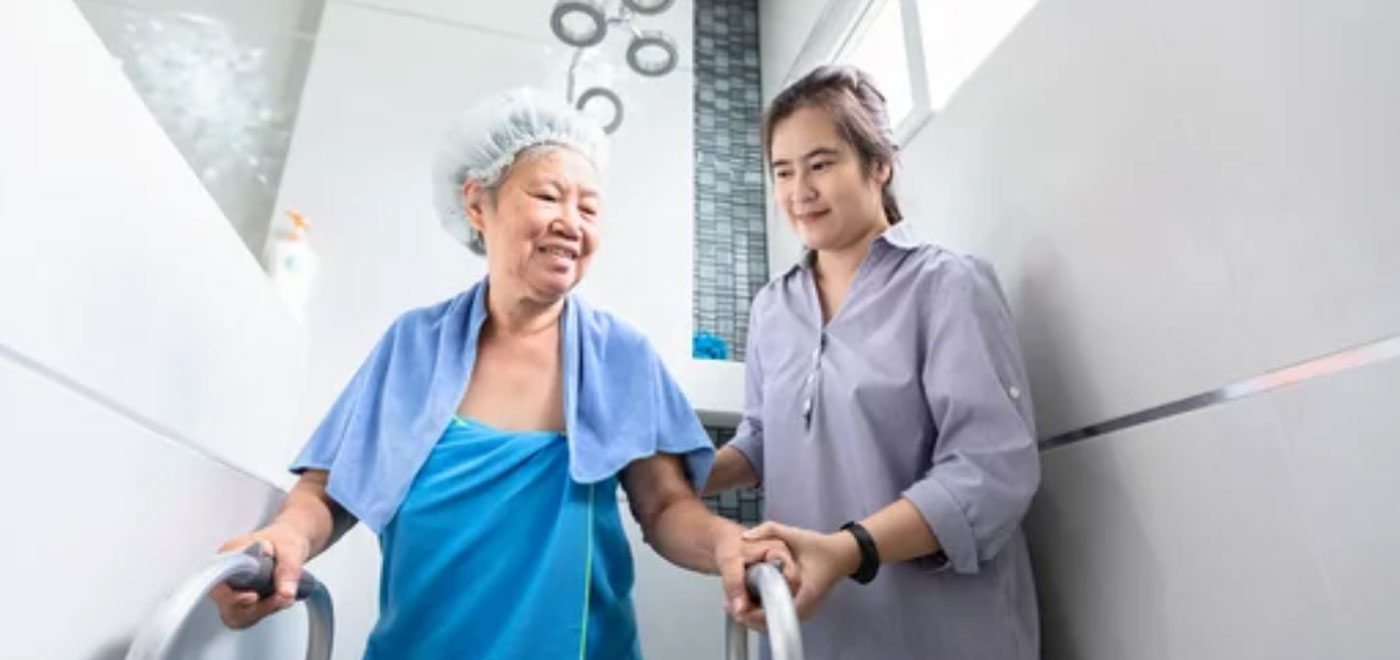Essential Bathing Tips for Older Adults
Essential Bathing Tips for Older Adults

How Often Should Seniors Bathe?
Understanding the best way to bathe an elderly person starts with frequency. A daily full bath may not be in your older loved one’s best interest, as skin tends to become drier and more sensitive with age. Instead of daily head-to-toe washing, focus on elderly hygiene care that includes gently cleaning private areas and skin folds daily with a warm washcloth.
The ideal bathing routine for elderly individuals involves full baths only two or three times per week. This approach addresses common elderly bathing challenges while preventing skin irritation and maintaining essential cleanliness.
Preparing for a Safe and Comfortable Bathing Experience
Bathroom Safety Measures
Implementing proper bathing safety for seniors requires careful bathroom preparation. Ensure the bathtub or shower can accommodate your loved one’s balance and agility levels. Essential shower safety tips for seniors include:
- Remove tripping hazards from bathroom floors, including area rugs
- Install grab bars in the tub or shower area
- Consider a shower seat to prevent falls
- Use an inexpensive handheld shower hose for easier rinsing
- Install a transfer bench for those unable to step into bathtubs
- Ensure the room is warm before bathing begins
- Always test water temperature before your loved one enters
Gathering Essentials in Advance
Successful senior bathing assistance requires preparation. Gather all necessary items beforehand, including washcloths, towels, soap, and shampoo. If your loved one has favorite products they’ve always used, continue using those unless they become too harsh for sensitive skin. Consider switching to senior hygiene products like baby shampoo or sensitive skin formula soap when needed, and explain the reasons for any changes.
Maintaining Privacy & Encouraging Independence
Learning how to help elderly parents with bathing involves respecting their dignity and promoting independence. Allow your loved one some level of privacy when cleaning private areas by providing a towel to keep on their lap throughout the bath, lifting it only as needed.
If your loved one can handle a washcloth, encourage them to clean themselves, starting with simple tasks like wiping down their arms. This approach helps them retain independence and keeps their mind occupied during more thorough washing. Additional distractions that may help include light conversation or playing their favorite music during bathing.
Alternative Bathing Options
When traditional bathing becomes difficult, several alternatives can help with keeping seniors clean without bathing:
No-Rinse Solutions
No rinse bathing solutions for seniors offer convenient alternatives for bed-bound individuals or those with mobility challenges. These products include no-rinse soaps and shampoos that make sponge baths easier, though occasional rinsing is still necessary to remove residue buildup.
Bathing Aids and Equipment
Various bathing aids for the elderly can improve safety and comfort, including transfer benches, shower chairs, handheld shower heads, and non-slip mats. These tools address specific elderly bathing challenges while promoting independence.
Professional Home Care Services
Home care bathing assistance provides an excellent solution for families managing senior care. Many families find success handling day-to-day washing themselves while having a professional home care aide visit a couple of times per week for more thorough bathing. This approach combines family involvement with professional expertise, ensuring comprehensive care while reducing caregiver burden.



